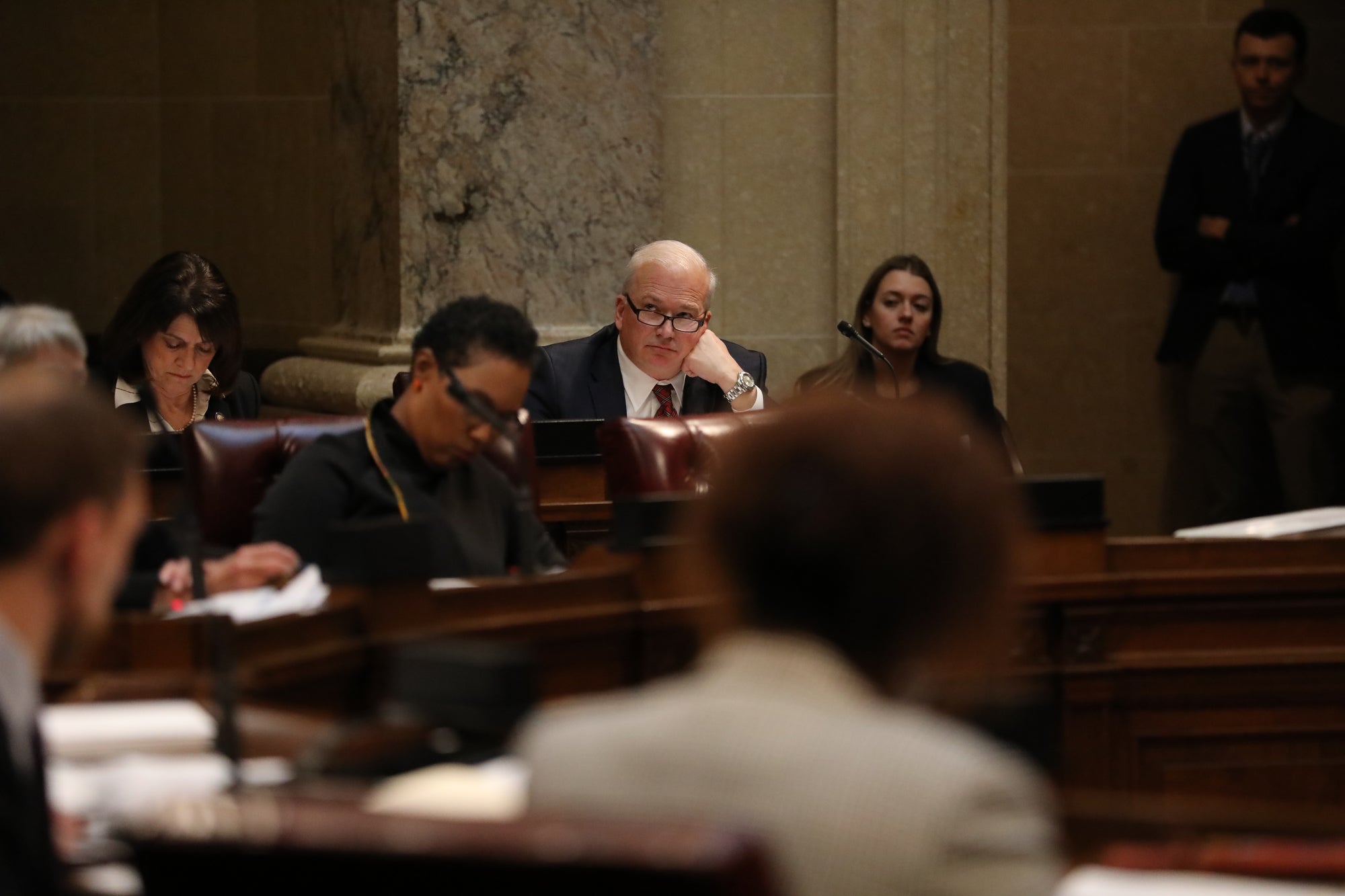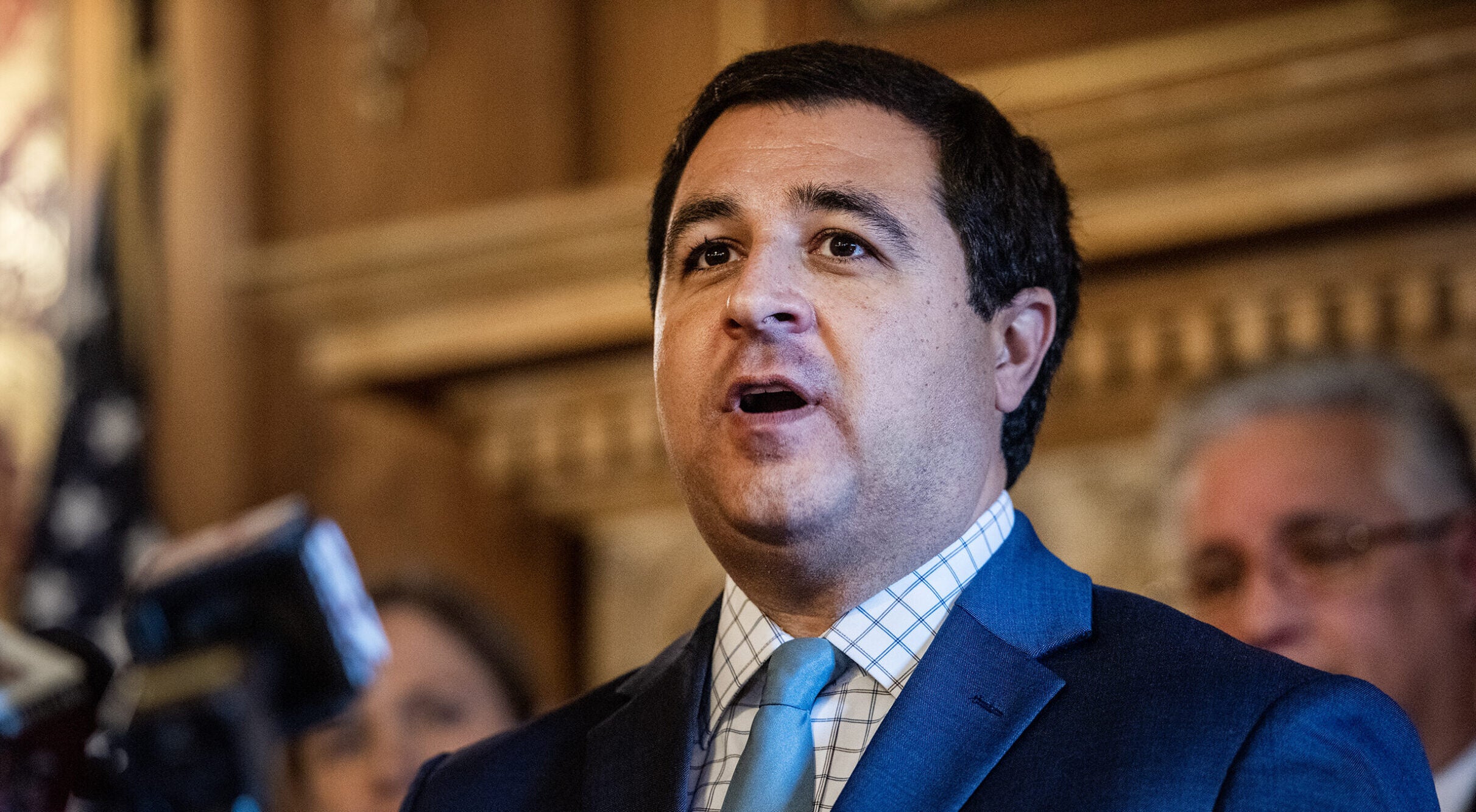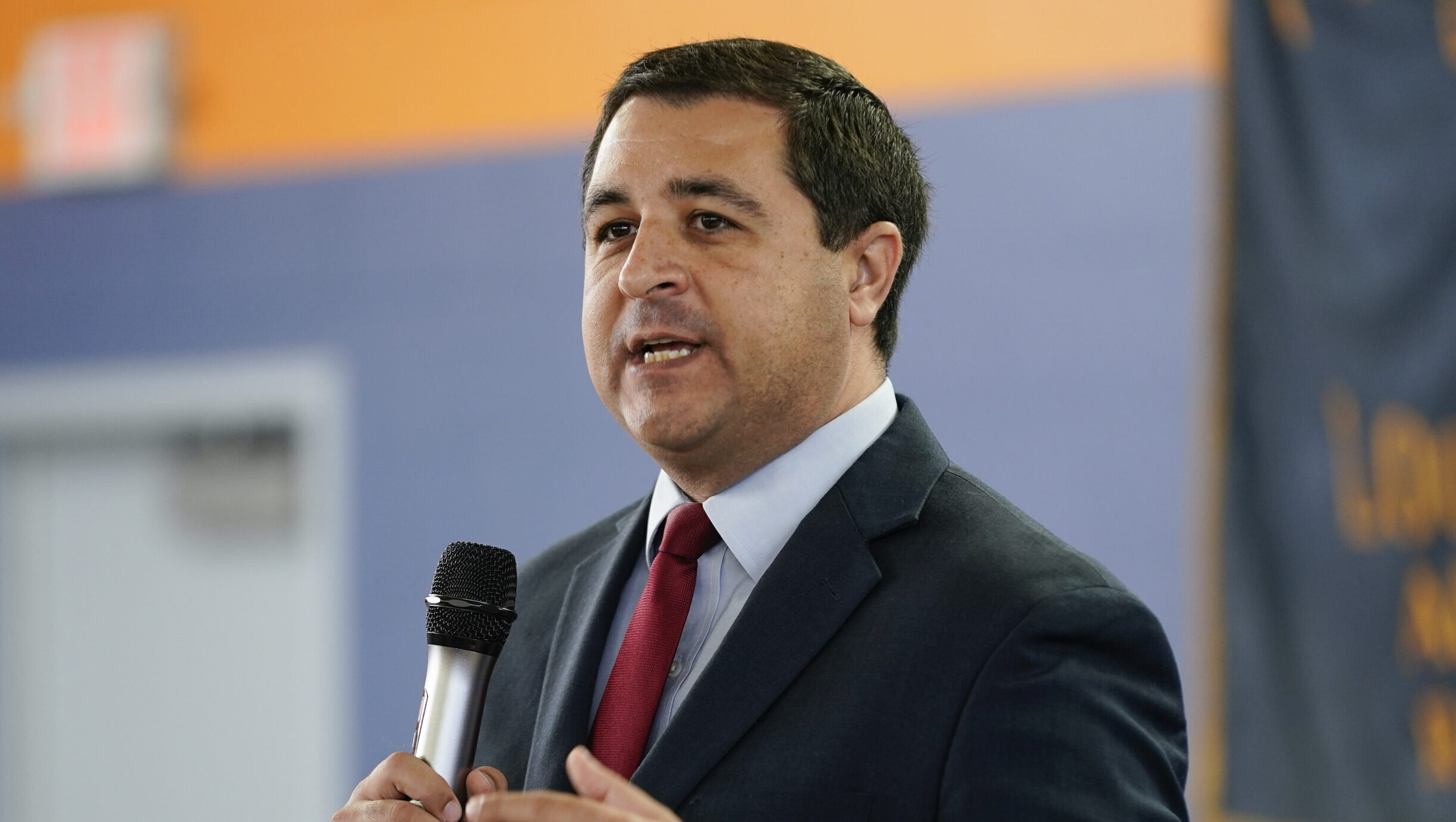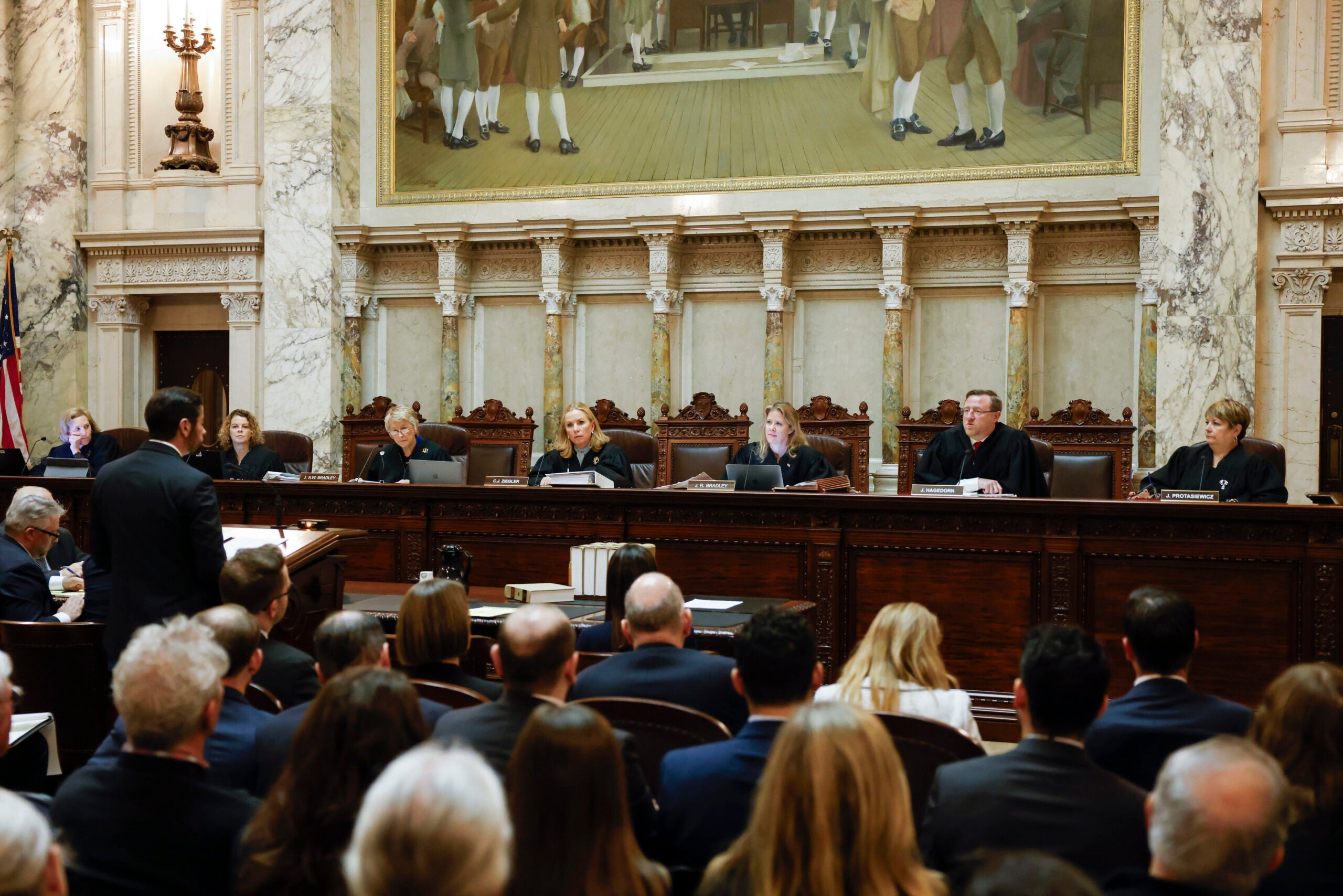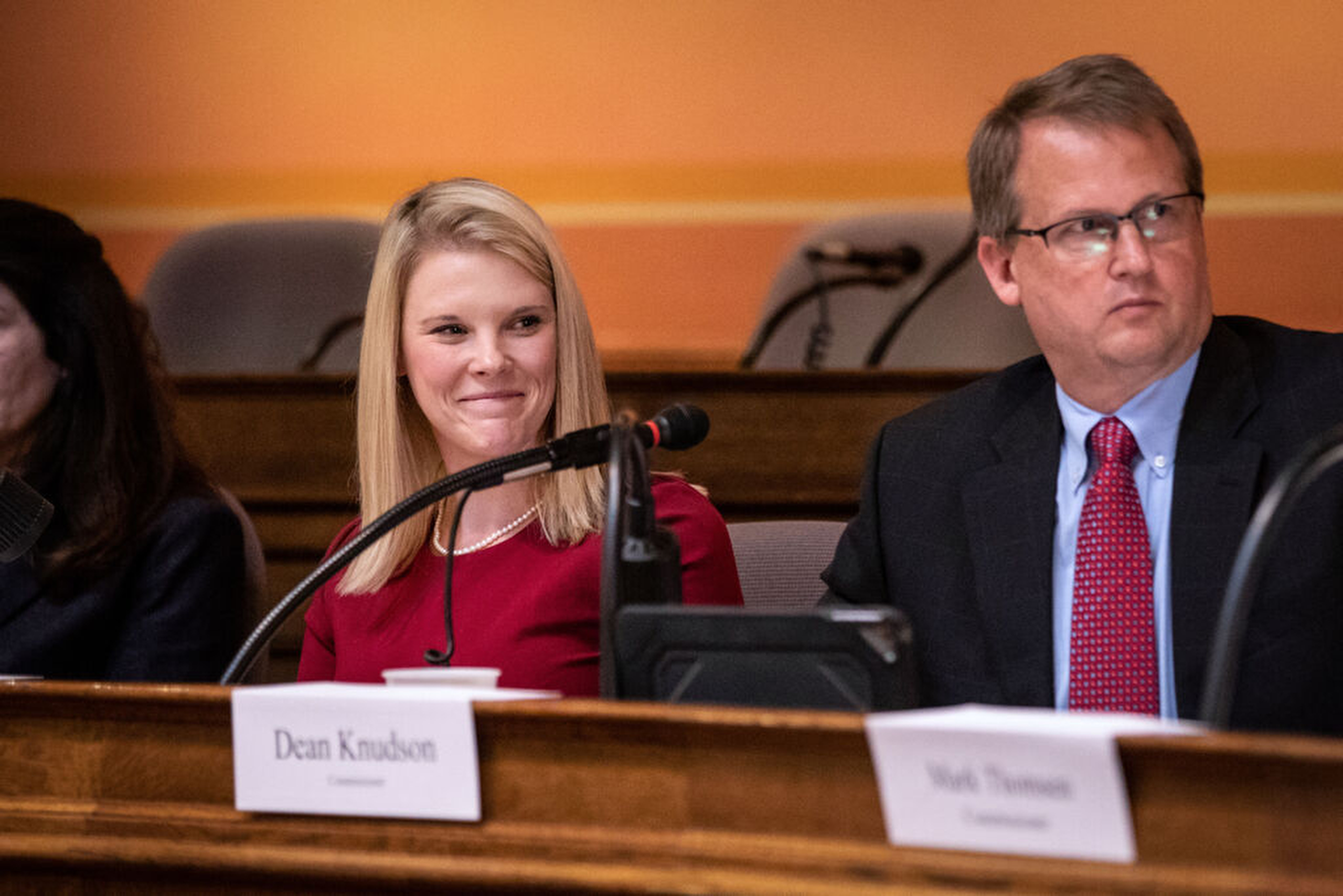A Wisconsin appeals court heard arguments Monday in a case challenging a law that limits the power of Wisconsin’s attorney general.
The law in question requires Wisconsin’s Department of Justice to get approval from a legislative budget committee before agreeing to the terms of civil settlements that the DOJ prosecutes on behalf of state agencies.
It was part of a spate of lame-duck laws passed by Wisconsin’s GOP-controlled Legislature in December 2018, just before newly elected Attorney General Josh Kaul and Gov. Tony Evers, both Democrats, were set to take office and replace Attorney General Brad Schimel and Gov. Scott Walker, both Republicans.
Stay informed on the latest news
Sign up for WPR’s email newsletter.
The DOJ uses civil lawsuits to pursue a broad swath of priorities, including enforcing consumer protection and environmental protection laws, and Kaul has for years criticized the lame duck law limiting those powers as a legislative “power grab.” Last year, a Dane County judge sided with Kaul’s office in a lawsuit that argued the law violated the constitutional principle of the separation of powers. The judge allowed the lame duck law to remain in effect pending appeal.
“The Wisconsin Constitution, like the United States Constitution, protects against the real danger of the same person who (has) the powers of making the laws to also have in their hands the power to execute them,” Assistant Attorney General Hannah Jurss told a three-judge appeals panel in Waukesha Monday.
But Misha Tseytlin, an attorney representing the Republican-led Legislature, told the appeals court the Legislature should have “a seat at the table” when overseeing proceeds from major settlements.
“That’s a source of income for the state, and so Legislature needs to monitor that source of income, make sure it matches the expenses,” Tseytlin said, giving an example of multi-million dollar settlements awarded to Wisconsin from opioid or tobacco companies. “That means the company has been unlawfully taking the money from the state and its people. How that money is going to be expended is something which the Legislature at least has an interest in.”
It’s likely the case will eventually be appealed to Wisconsin’s Supreme Court, where liberals will gain a 4-3 majority once Justice-Elect Janet Protasiewicz is sworn in Aug. 1.
In 2020, the state’s Supreme Court mostly sided with Republicans in a separate lawsuit over the 2018 laws that limited the power of the incoming governor and AG. That case challenged the lame-duck laws on broader grounds.
Both Kaul and Evers won re-election in 2022.
Wisconsin Public Radio, © Copyright 2025, Board of Regents of the University of Wisconsin System and Wisconsin Educational Communications Board.
